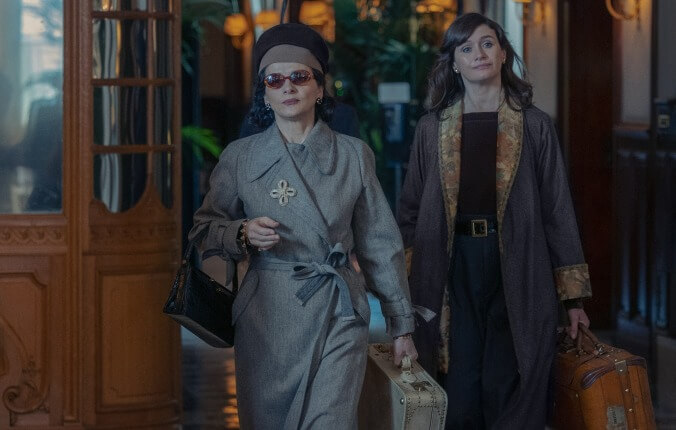The New Look review: Chanel and Dior anchor a handsome period drama
The Apple TV+ series puts Parisian fashion at the heart of a stirring tale about resilience and creativity

When Christian Dior unveiled his 1947 collection “Corolle,” he harkened back to the opulent femininity of the late 19th century, to a pre-war world that felt decidedly novel precisely because it was such a strident throwback to elegance and tradition gone by. Dior’s instantly iconic “New Look” gives Apple TV+’s period-drama series, about the designer’s storied journey toward that famed collection, its name. But beyond just chronicling a pivotal moment in 20th century fashion history, The New Look, which premieres February 14, is a sweeping historical drama about what complicity and resilience looked like in Paris during its Nazi occupation and the years that followed.
Todd A. Kessler’s series opens not during those tumultuous years in the French capital, but in 1955. Christian Dior (Ben Mendelsohn) is set to speak to a packed house at Sorbonne University on the social, cultural, and economic importance of fashion. But as his anxiety risks keeping him from taking the stage, another fashion designer is gearing up for what she hopes will be a triumphant return and a powerful rebuke of all that Dior stands for. Coco Chanel (Juliette Binoche), in turn, becomes a key figure in the conversation at the Sorbonne: Is it true Dior stayed behind and designed for Nazi officials while Chanel couldn’t bear it and fled during the war?
Dior is diplomatic in his answer: Those years were chaos. And maybe the oversimplification that one collaborated with Nazis while the other stood their ground is not as obvious or as simple as it may appear. To flesh out those murky ethical areas, The New Look flashes back to wartime Paris where we meet a designer brimming with talent who’s yet to break out and another seeing her legacy at the brink of collapse. Dior is a dutiful worker under Lucien Lelong, forced to design for the wives of occupying Nazi officers; Chanel faces losing her company to her partners, two brothers who have fled to America to escape the threat of Hitler.
What’s soon clear is that each will be forced to make choices—about their work, about their lives, about their very approach to creation and design—that are marked and marred in equal measure by the chaos around them. For no sooner is Dior realizing the only way Lelong’s house will survive the occupation is by gritted subservience to fashionable wives of Nazi officers than he finds himself unwittingly helping the resistance, of which his sister is a key player. Later still when Catherine Dior (Maisie Williams) is abducted and taken to a war camp, her brother will have to find ways of bending the rules here and there to make sure the person he so adores comes back to him alive, if perhaps not entirely in one piece.








































